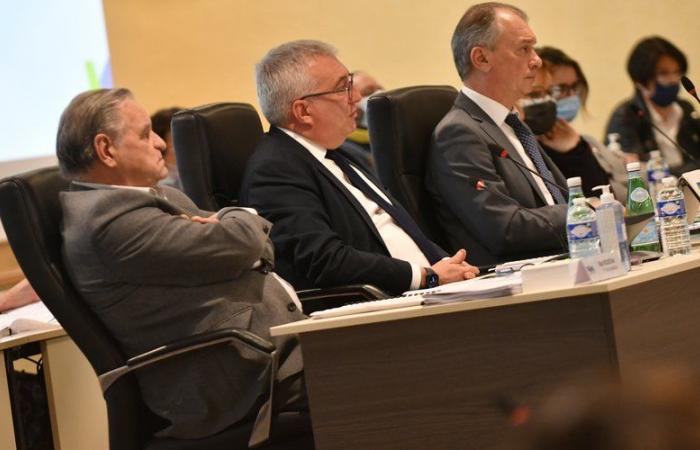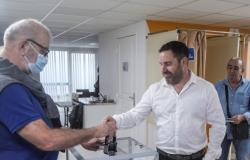The CGT and CFDT unions have called for this measure which is far from unanimous among elected officials.
As during the municipal council last Monday, the question of teleworking for the Agglomeration services was put to the vote during the community council this Thursday evening.
“We have been working on this subject for three years, indicates Yannick Iffernet of the CGT. We wanted one or two days a week. We got one… and possibly in 2025, a year before the municipal elections that could change the situation. We didn’t want to block the system, but we abstained during the vote before the Territorial Social Committee (CST).”.
Inequality between agents, work efficiency, the administration is not in favor of teleworking
The unionist believes that the experiment put in place “is not very interesting for the agents. But we still have to discuss it with Patrick Cathelineau, general director of services. More generally, this measure is accompanied by discussions on the four-day week and on advancement in grade. “This is going in the right direction. With Christophe Rivenq, the president of Alès Agglo, and Max Roustan, the mayor, we do not always agree but we now maintain peaceful relations.”
On the side of the CFDT and Cédric Marrot, it is “the laborious aspect of measurement” that we retain. “This is a subject that has been dragging on since the end of covid. With the CGT, the administration, and the HR department we had worked on a new draft of internal regulations, but it did not come to fruition. The will was there, but the conditions were not met. The CFDT relaunched the negotiations A new round of discussions was organized, with the CGT which joined the discussions. We obtained this first experiment with teleworking and we must meet again in a year. the authorities to take stock.”
If Christophe Rivenq is not very enthusiastic about this new form of working from home, it is because he considers the measure to be unfair: “Nearly 80% of agents are not eligible for teleworking. It is not very egalitarian. It is not a social advance for everyone. This is why we have initiated discussions on grade advancement. and the four-day week In addition, often technical files with several stakeholders, from various services or other administrations require constant relations between agents in order to avoid any error of interpretation Without counting on the provision of computer equipment. , networks…”
The president of Alès Agglo receives unexpected reinforcement…
This Thursday evening, during the community council vote, the president of Alès Agglo received the somewhat surprising reinforcement of Paul Planque, elected PCF: “As I have already been able to tell the municipal council, I share the point of view of the president of Alès Agglo: teleworking is not a social advance. Interactions between agents are essential.”
The measure was nevertheless adopted. “Today, around 25 agents, for different reasons, are teleworking. This is a first step”assures Christophe Rivenq.
Couple of agents on a distant trip: “everything is validated”
A couple of agents spent several months on a long journey, which took them very far from the mainland. If one of the agents is on availability, which clarifies their position, the other has opted for teleworking, part-time. Asked about this, Yannick Iffernet is embarrassed: “I know this person and I will not comment. Within the framework of the national regulation for teleworking, the mayor of Alès and the president of the agglomeration could grant measures, even if we had not yet signed an agreement. They have room for maneuver, they are the bosses.”
Cédric Marrot, head of the CFDT, also does not wish to comment on this “special case. What is certain is that this example shows that the system can work. Even far away, we can carry out our work. If agents have been pioneers in terms of teleworking, it is thanks to them that we we had the opportunity to put the matter on the table.”
“I am perfectly comfortable discussing this case, assures Christophe Rivenq, president of Alès Agglo. The agent handles the files remotely. Email exchanges are fluid, the work is effective. We are talking about an activity of three hours per day, since the agent is part-time. The fact that we authorized the agent to work in this way gave rise to the signing of an agreement. There was a decree from the mayor on this subject. Everything was bordered, everything was validated. At the agglomeration or at the town hall, we are not in the habit of doing just anything.”






